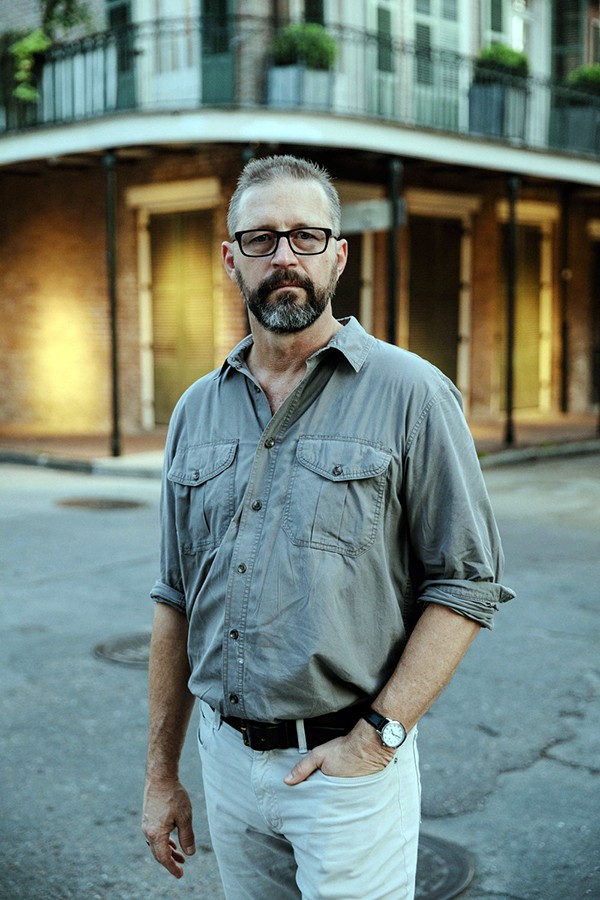British travel writer and journalist Richard Grant penned an instant bestseller when he wrote about his misadventures in impulsive homeownership in the Mississippi Delta in Dispatches from Pluto. Grant’s accounts of his time in Holes County, “the poorest county in America’s poorest state,” were marked by a keen eye for details and the author’s lively sense of humor. The same can be said for Grant’s most recent work, The Deepest South of All: True Stories from Natchez, Mississippi (Simon & Schuster). I spoke with Grant to learn more about what drew him to study Natchez — and how he found it to be a timely example of today’s America, in its contradictions, eccentricities, and in the way it’s haunted by its past.
 William Widmer
William Widmer
Richard Grant
Memphis Flyer: What drew you to Natchez as the subject for a book?
Richard Grant: It’s one of the most haunted places I’ve ever been. I came into town past the old slave market and there was an impoverished Black neighborhood that had grown up around the old slave market. Then these mansions came into view. The place feels really haunted by slavery. It’s kind of beautiful and tragic at the same time. You have these gorgeous mansions that are built on slavery.
MF: That description sounds like it could be applied to all of the U.S. right now.
RG: At first it just seemed really eccentric and incredibly Southern, but the more time I spent in Natchez, it just seemed like a distillation of the national situation. I mean the whole nation is haunted by slavery. We’ve never really addressed what that means to our history. In Natchez, people were asking these questions and having these discussions. They’d been having them intensively for quite a few years before I got there, and then it kind of felt like the rest of the country started catching up this year.
MF: And some aspects of Natchez that you saw as contradictory intrigued you as well?
RG: A lot of the prominent white families dress up their children in Confederate uniforms and they put on hoop skirts. So that kind of made Natchez sound like a bastion of the Old South. Then I found out that they had elected a gay Black mayor with 91 percent of the vote, which made Natchez sound like an extraordinarily progressive place for the Deep South.
MF: Will you talk about the Southern eccentricity you mentioned?
RG: In this book we’ve got a woman named Ginger Hyland. She decorates 168 Christmas trees in a costume jewelry collection at Christmas. She’s got a collection of 500 antique eye wash cups. She lives in an Antebellum mansion that she believes is haunted. Natchez is very accepting of a person like that and, I think, enjoys a person like that.
There’s a strong streak of eccentricity running through it. I think that’s the way that the brothel was tolerated in the middle of town for 40 years or however long. I think people in Natchez enjoyed the fact that they had a brothel madame riding around town in a white Cadillac with a white poodle on her lap and a pistol. It provides lots of good material for cocktail party storytelling.
MF: Is there anything else you want to make sure I bring up?
RG: I want to mention the story of this West African prince who was enslaved in Natchez for 40 years. That’s a pretty important thread in the book, and I think it tied the whole thing up. I wanted to find a way to get into slavery since Natchez wouldn’t exist without it. All its wealth was built on slavery, but there’s very little in the records from the slaves’ point of view. So I seized on [Abd al-Rahman Ibrahima], who ended up in the White House and going back to Africa. It was very interesting to meet his relative in present-day Natchez, one woman who was descended both from him and the family that enslaved him.